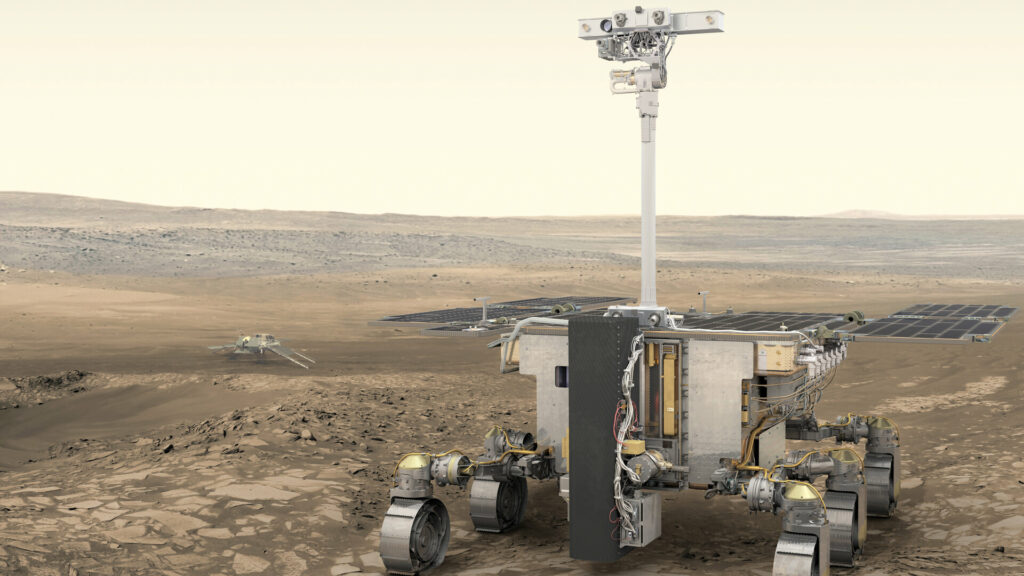The European Space Agency (ESA) has signed a contract worth 522 million euros with a consortium led by Thales Alenia Space. The money will be spent on continuing the development of the ExoMars mission.
Finding Martian Life
The ExoMars mission was supposed to go to the Red Planet in September 2022. The aim of the project was to deliver the Russian Kazachok landing platform and the European Rosalind Franklin rover to Mars. The latter was supposed to search for biomarkers — compounds that could indicate the possibility of life on Mars in the past or even at the present time.

To solve this problem, the rover was equipped with an unparalleled drill capable of penetrating to a depth of up to two meters. This is very important, as it allows collecting samples from under the soil layer, sterilized by exposure to surface radiation. Thus, Rosalind Franklin will have a chance to find organic material that testifies to the existence of life on the Red Planet in the past.
Russia’s full-scale invasion of Ukraine has put the project in a very difficult position. In protest, the ESA completely severed cooperation with the aggressor country. As a result, all components supplied by Russia were removed from ExoMars — some instruments, a rocket and a landing platform. This raised the question of its future fate.
Second Life of the ExoMars Mission
In November 2022, the ESA council decided to continue ExoMars. NASA will provide some support to it in this: in March 2023, the aerospace administration announced the allocation of USD 30 million for these purposes.

But still, the European space industry will take on the brunt in the form of a consortium led by Thales Alenia Space. The recently concluded contract with ESA is divided into several tranches with a total value of 522 million euros. It includes the maintenance and modernization of already built elements, as well as the development of the lander.
The French, Swiss and Spanish branches of Thales Alenia Space will be responsible for the air shell, parachute, cameras and electronic control unit for the landing module’s braking engines, as well as for the rover’s electronics. Airbus Defence & Space (UK) will be responsible for the rover and the mechanical, thermal and propulsion systems of the lander, ArianeGroup (France) for the thermal shield, OHB (Germany) for the flight module, and ALTEC (Italy) for the Rover Operations Control Center. As for the launch date of ExoMars, it is currently scheduled for the end of 2028.
According to https://europeanspaceflight.com
Follow us on Twitter to get the most interesting space news in time
https://twitter.com/ust_magazine


